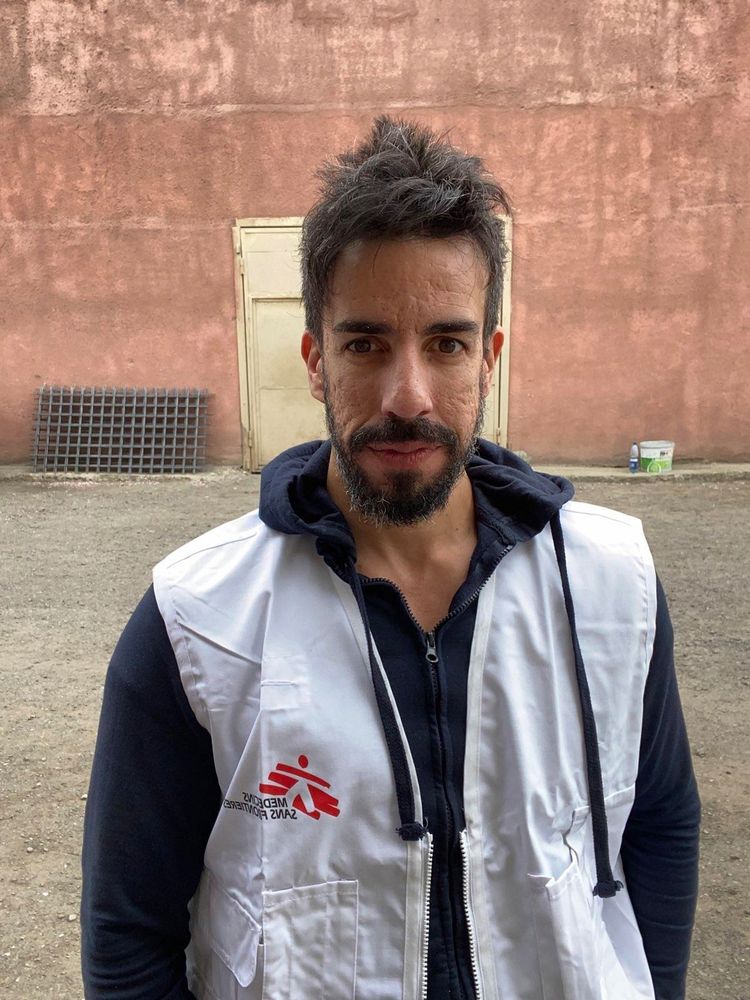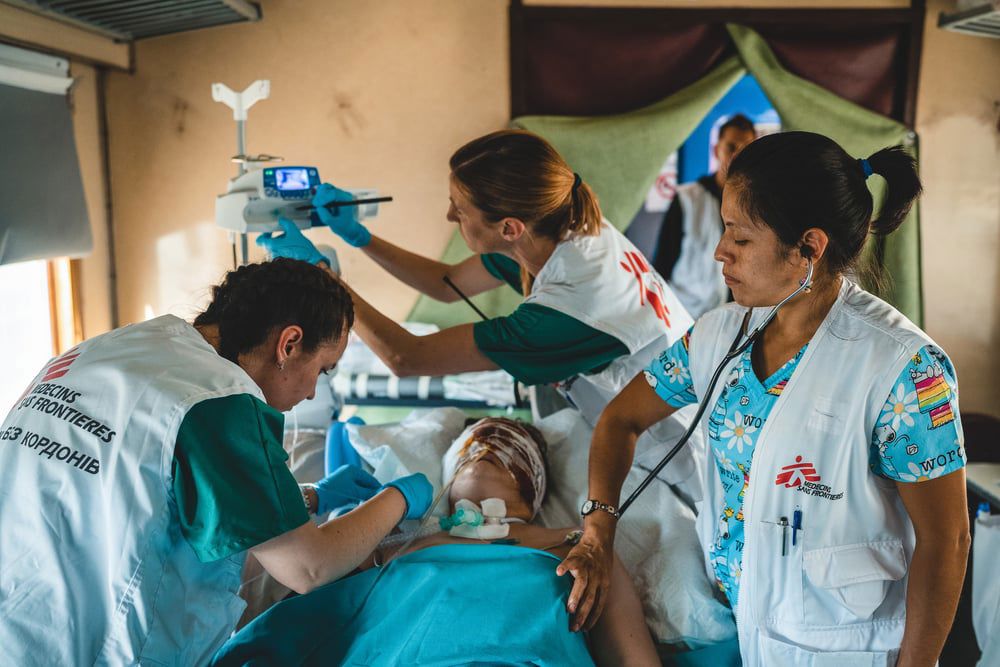Raul Manarte is a mental health activity manager for Médecins Sans Frontières (MSF) in Ukraine. He helped launch MSF’s mental health response in the towns of Uzhhorod and Ivano-Frankivsk in southwestern Ukraine and Kropyvnystskyi in central Ukraine. Here, Manarte describes how MSF is addressing mental health needs in these areas where many people have fled to from areas closer to the front lines.
What is the situation in the areas where you organised MSF’s mental health response?
Tens of thousands of the seven million internally displaced people (IDPs) – mostly women, children and some elderly people – are transiting or settling down in these three areas. People fleeing for safety settle not only in the towns but also in the surrounding rural areas, so there are many different pockets with displaced communities.
Cities have a bigger presence of nongovernmental organisations (NGOs), whereas in the often less populated rural areas, there are fewer services. Many people decided where to flee to because they have relatives or friends in the area or because of the availability of shelters for them to stay in while they move around Ukraine. Every district or village usually has a hub where IDPs can register and there is a list of shelters – like schools or youth centres – where rooms (mostly shared) are available. These places are run by government authorities with support from volunteers, and provide blankets, pillows, first-aid medication, food and other essential items. However, the majority of registered IDPs stay in private houses.
How has the war changed the life of people in these more stable places?
Cities have become more crowded with the arrival of IDPs. You also hear sirens, and so people move to bunkers. Fuel is being rationed, people talk about bombings and casualties and sometimes get quite emotional. People are consuming a lot of news, particularly on their phones. There are checkpoints on the road and curfews, and you only see military jets in the sky – no other planes. Another sign of change is that children are not attending school in person anymore, only online classes.
Despite all these changes, there is still some sense of normalcy: people continue to carry out their daily tasks, laugh, sing or go to work. In general, the further east you go, closer to the front lines, the higher the distress is. And the more recently a person has fled a conflict area, the more likely they were exposed to a potential traumatic experience, such as bombings, violence or scarcity of resources.
Is the local health system equipped to address mental health needs?
In Ukraine there are a lot of psychiatrists, but the ratio of psychologists per person is not as high. There are about 10 psychiatrists per 100,000 people and 1 psychologist per 100,000 people, according to WHO data from 2020. There are several hospitals, many of them in remote areas, where people can be admitted for long periods to receive psychological care, and they traditionally treat psychological issues with medication rather than with therapy.
While there are not many psychologists in the health system, there are many psychologists in villages and districts, but there is not a formal organisation or accreditation in collective bodies. Some of them are not trained in psychological first aid and there is not a real referral system.
In the eastern part of the country, psychologists tend to have more experience with emergencies due to the longstanding conflict. Therefore, professionals located in areas receiving IDPs often don’t have enough expertise in dealing with acute stress, and mental health support networks rely on volunteers. There is stigma associated with going to a mental health professional – which is common in many parts of the world.
What is MSF doing to support?
Over the past few weeks, we have been recruiting psychologists, and we are now starting to hire community mental health workers so that we can go door to door to address the needs in registered shelters and informal settlements.
We are training healthcare workers from hospitals and polyclinics, and social workers and volunteers working at the IDP shelters on psychological first aid. We share psychoeducation materials, and we train them in verbal and non-verbal communication skills, on how to deal with symptoms of acute stress and on case detection. There is also a component on self-care because while health workers focus their priorities on the patient, they are also experiencing high levels of stress themselves.
We are also treating IDPs directly through psychoeducation groups and individual consultations, either in person or via telephone. Patients are referred to us by the health workers we’ve trained, school psychologists, or a hotline, or they find us from the brochures we distribute at the shelters. We want to help people better manage their symptoms, and help them understand that these symptoms are a normal response to an abnormal situation.
What kind of symptoms do we see in the patients?
We see acute distress symptoms, people who are hyper reactive to sound, and others who are irritable or angry. Some people have intrusive thoughts or flashbacks, for example a person might remember an attack on their hometown whenever the sirens sound.
Many people are not focused on what has happened but are distressed by what may happen in the future – for example, some women fear that their husbands will have to join the military. Others are distressed because their family has already left the country and they feel alone. I remember one woman whose son is currently in Austria and husband is fighting in the Donbas region. Children sometimes show aggression or regressive behaviours, such as wetting the bed.
We also see people wanting to help each other because they feel the need to be useful. Some people also feel guilt – guilt of being alive, of not being on the frontlines, of dancing and listening to music as they think that this is not appropriate anymore.



